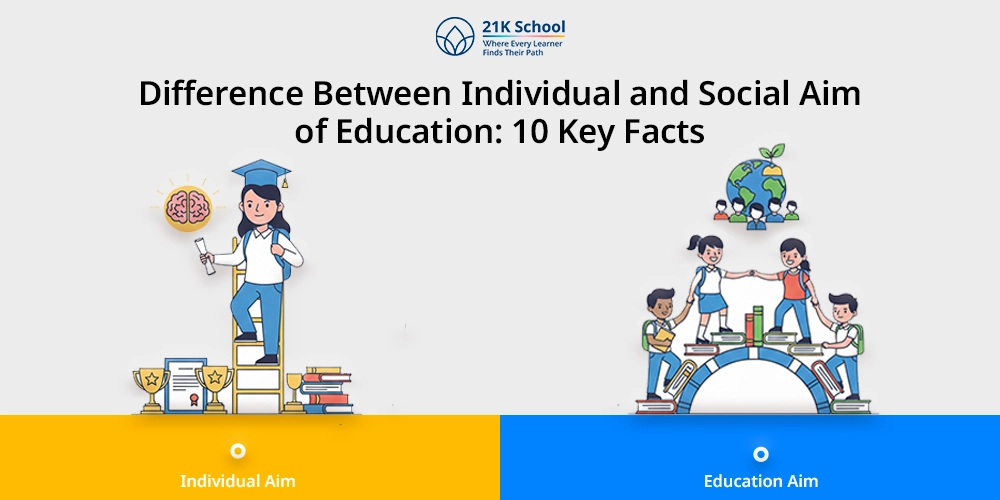
Do online schools help teachers in the same way as students?
Online schools are the future of online education because of their various benefits and sustainability. Online schools not only provide benefits to students but also help teachers to improve their overall development.
Online schools allow teachers to conduct classes remotely and provide them flexibility in their teaching methods . Online teaching gives them a better experience as compared to traditional schooling .
With the help of technology in education , teachers can effectively use digital systems such as Learning Management System (LMS) and School Management System (SMS), which enable them to store and manage students’ data more efficiently.
This method helps in reducing the burden on them and saves their time.
Online education gives a flexible schedule, which enables teachers to work less and engage with students more efficiently.
Contents
- Top 15 Benefits of Online Schools for Teachers
- 1. Flexibility
- 2. Career Advancement
- 3. Better Time Management
- 4. Individual Pace
- 5. Easy Accessibility
- 6. Professional Development
- 7. Easier Communication
- 8. Flexible Working Hours
- 9. Immediate Feedback
- 10. Access to a Much Wider Audience
- 11. Technical Expertise
- 12. Computer Literacy
- 13. Convenience
- 14. Remote Teaching
- 15. Different Learning Styles
- Summing Thoughts
Top 15 Benefits of Online Schools for Teachers
Online School is beneficial for teachers and is not limited only to students. Online school allows teachers to work in a systematic way that makes thinking simple and easy.
With the help of the contribution of technology in education , teachers can focus on every student and give equal education. Below, you can check the benefits of online schools for teachers.
1. Flexibility
One of the major advantages of online schools is that it provide flexibility to teachers. Flexibility allows teachers to prepare class notes as per students’ preferences and personalised learning , which gives them enough time to focus on every student.
Due to online settings, teachers also don’t have to travel anywhere, which allows them to reduce their costs and travel.
Online teaching enables educators to balance personal life and professional life, so they can spend more time with their families. It also allows teachers to give the flexibility to conduct the classes from any location.
2. Career Advancement
Online schools provide opportunities to enhance the career advancement of teachers.
Through teaching over digital mediums, teachers gain digital literacy skills as well as technical knowledge, which enables them to enhance their resume and portfolio.
Even online courses allow teachers to develop new skills, as well as update their knowledge with the current trends. These skills help them to switch job and achieve better opportunities.
3. Better Time Management
Online schools allow teachers to enhance their time management skills . As in online schools, there is no fixed time, and it provides flexibility to teach as per the study schedule .
Due to the flexible nature of online learning, students can also complete their assignments and projects on time, which allows teachers to evaluate their tasks with the help of formative assessment tools .
Using digital tools and evaluation processes helps in saving time, and educators can effectively utilise their time.
4. Individual Pace
One of the major advantages of online learning is that it allows teachers to maximise their learning pace. The effectiveness of online teaching enables educators to reach their full potential and achieve goals.
This also enables teachers to indulge in lifelong learning and makes them self-directed learners.
Using LMS and SMS allows teachers to work effectively and assist teachers and students to work collaboratively, which also enhances teacher and student relationship .
5. Easy Accessibility
Online learning provides students with easy accessibility to educational materials, however, it also helps teachers to plan their study aspects earlier with the help of technology.
Online schooling gives broader access to all study materials and teaching materials to teachers, through which they can effectively utilise these materials to prepare class notes.
This helps in making education more impactful and enhances teaching and learning processes, and also promotes a positive learning environment .
6. Professional Development
Online schools also help in the professional growth of teachers. Professional development is essential not only in terms of career opportunities but also to stay updated with the changes.
Online learning enables teachers to use technical methodologies and digital aspects, which enables them to develop technical skills.
New teaching techniques enable them to upskill their knowledge and prepare for a future career path.
7. Easier Communication
Online schooling enables teachers to communicate effectively with students. In traditional schooling, it becomes tough for them to communicate properly with their peers due to an improper teacher-student ratio and distractions.
Online learning offers one to one interaction opportunities and flexible schedules where teachers and students can share their viewpoints and opinions.
This also helps in making teacher-student relationships more strong and effective.
Proper communication skills enable teachers to develop confidence and share their thoughts with more clarity, which also helps students in their learning process.
8. Flexible Working Hours
The online learning process provides teachers with flexible timings. As in online schools, teachers don’t have to travel to any location, which helps in saving their time as well as provides them with flexible teaching opportunities.
In this method, teachers can teach students as per the comfortability and study schedule of students.
Also, with the help of digital tools such as LMS and SMS, teachers can prepare their class records efficiently, which also saves their time and gives them flexibility.
9. Immediate Feedback
Online learning enables teachers to get quick feedback from students. Through using formative assessment tools, teachers can prepare assessments for students, which enables them to understand the performance and weaknesses of students.
Through online schools, teachers can prepare their students for exams based on their progress reports. As it enables both teachers and students to receive and give quick feedback.
Digital classrooms enable students to get quick scores about their tasks and enable teachers, as well, to update their reports on the systems.
10. Access to a Much Wider Audience
One of the major benefits of online learning is that it reaches a wider audience. Online schools provide opportunities to educators to teach in a variety of styles and preferences.
Online education enables teachers to effectively reach wider perspectives of knowledge sharing that enable students to study from any location.
Online learning also enables teachers to reach remote or suburban areas to teach students to their full potential.
11. Technical Expertise
Taking classes in an online mode enables teachers to develop technical expertise. As with the e-learning evolution , technology in education has a greater impact on the teaching and learning process.
With the help of e-learning tools and resources, teachers learn about new technologies and upskill their technical knowledge. The regular practice allows them to develop technical expertise.
12. Computer Literacy
Online schools enable teachers to develop computer literacy with the help of online teaching methods.
Regularly indulging in online activities allows teachers to develop digital literacy, which enhances their technical literacy and allows them to develop computer literacy.
In the modern education system , computer literacy is the primary factor in every aspect of the field.
Indulging in e-learning platforms helps to enhance teachers’ computer skills as well as students’ computer skills.
13. Convenience
Online schools are beneficial for teachers as they provide them flexibility and less working hours, which makes it convenient for teachers.
Unlike traditional schooling, where teachers have to spend maximum time on the teaching process, online schools enable them to teach as per a fixed schedule and structure a routine.
This flexibility makes it convenient for teachers to spend more time with their families and can indulge in other skill-enhancing activities.
14. Remote Teaching
Since the covid 19 remote word has become common. Online schools offer teachers remote teaching and remote learning opportunities where they can teach students from the comfort of their homes.
Online teaching enables teachers to work from any location with the help of technology and the internet.
This provides students with proper support and guidance to make education more impactful, and also allows teachers to develop interactive class activities.
15. Different Learning Styles
Online education enables teachers to experiment with learning styles. As compared to traditional schools, which have a fixed curriculum and a fixed pattern of teaching.
Online schools provide quality education to students with flexible learning opportunities that enable them to cater style as per the students’ demand and make learning more interactive and engaging.
Summing Thoughts
Teachers can improve their professional growth flexibility, and overall teaching experience by enrolling in online courses.
In addition to streamlining administrative duties, technology integration in education promotes improved communication and customised teaching strategies.
Online learning enables educators to meet the demands of contemporary education by providing them with better time management skills, career advancement opportunities and the capacity to reach a larger audience, as well as promoting dynamic education .
Online schools are a viable and successful option for teachers and students alike, opening the door to a more vibrant and inclusive learning environment as the educational landscape changes.


